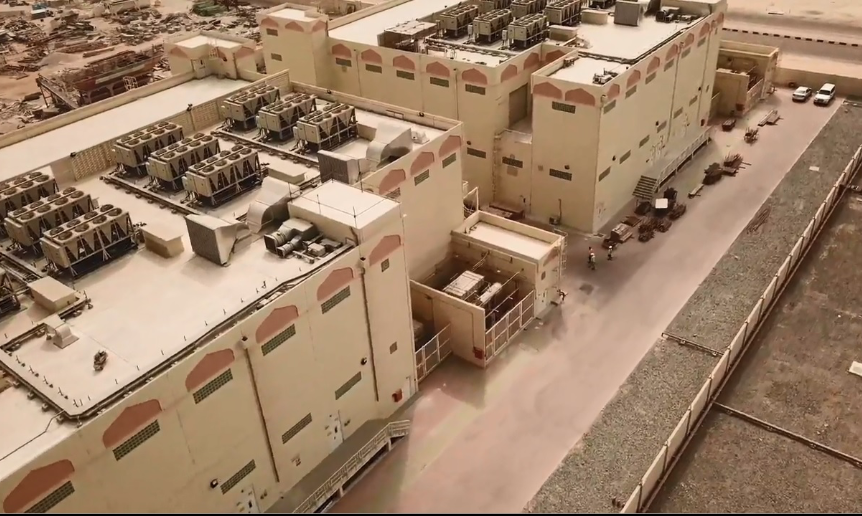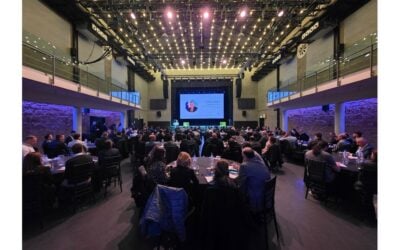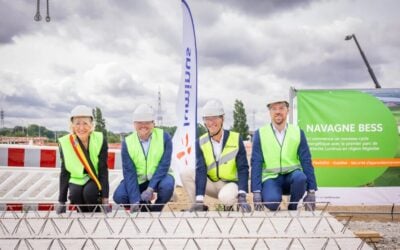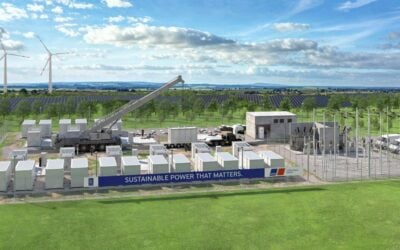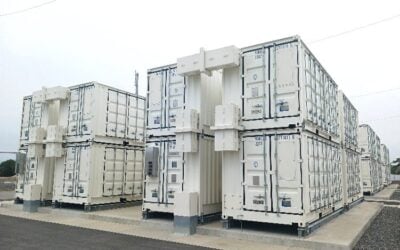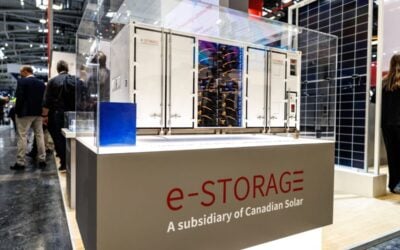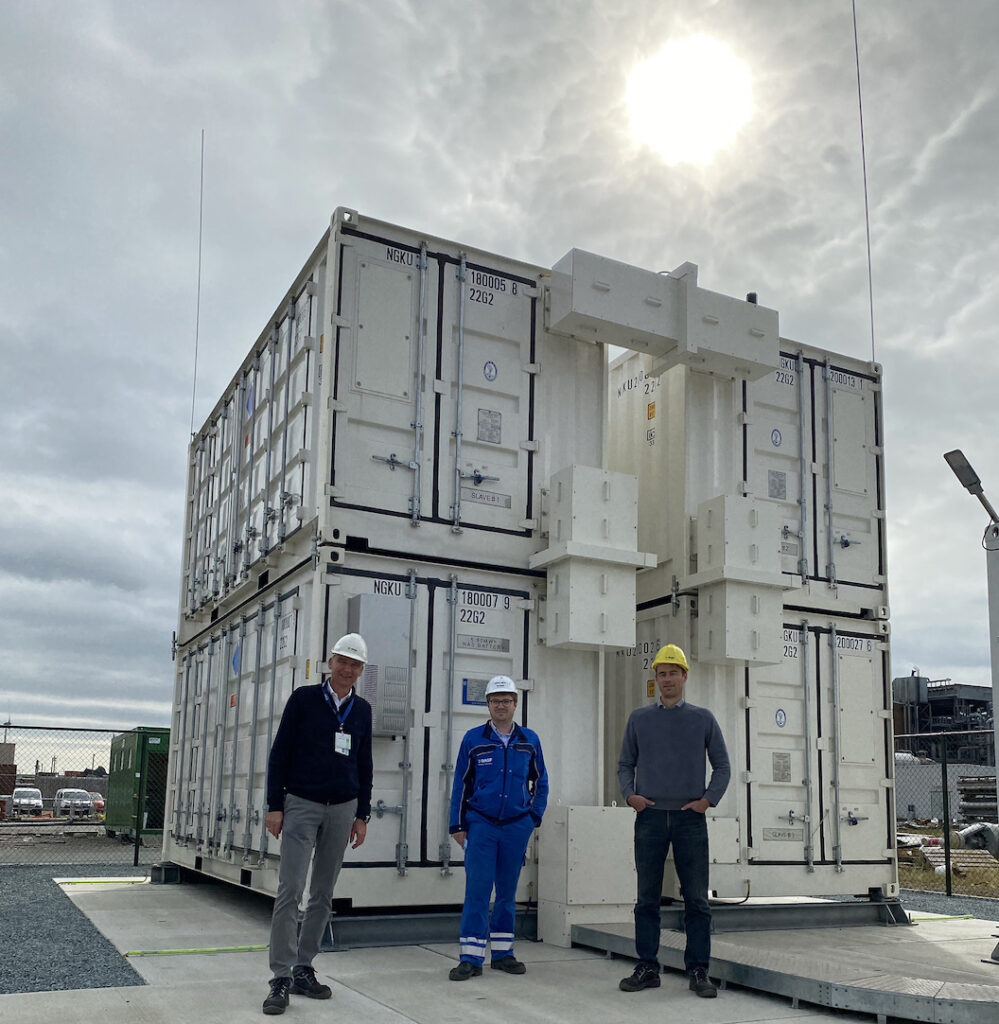
A long-duration energy storage system using NGK’s sodium-sulfur (NAS) batteries has been commissioned by a subsidiary of German chemicals company BASF, which seeks out high growth opportunity businesses to work with.
BASF New Business (BNB) said last week that it has installed and switched on the 950kW / 5.8MWh system at a BASF production facility in Antwerp, Belgium. The facility is one of six so-called ‘Verbund’ sites that BASF has around the world, where interlinked and integrated production, market platforms and technologies serve the company’s supply chains to various off-taker industries.
Enjoy 12 months of exclusive analysis
- Regular insight and analysis of the industry’s biggest developments
- In-depth interviews with the industry’s leading figures
- Annual digital subscription to the PV Tech Power journal
- Discounts on Solar Media’s portfolio of events, in-person and virtual
“By having our own battery system, we gain direct experience in long-term operations of energy storage systems and we can vary and test the associated infrastructure. We can also examine various use cases and business models,” BNB director of E-power management Frank Prechtl said.
BASF marked its entry into the energy market through the 2019 formation of a sales partnership with Japanese advanced industrial ceramics company NGK. The only producer of the high temperature rechargeable NAS battery in the world, NGK developed the technology in the late 1980s and it has been used in grid-scale energy storage applications in territories including the US, Middle East and Asia.
The two active materials in the battery, liquid sodium and liquid sulfur, are housed in the negative and positive electrodes respectively, with NGK’s Beta Alumina ceramic solid electrolyte mounted between them. The technology is suitable for multi-megawatt battery energy storage system (BESS) applications for durations of six to seven hours and is designed to last 4,500 cycles or 15 years of operational lifetime for about 300 cycles per year.
BASF New Business and NGK’s 2019 partnership agreement covers the development of next-generation NAS batteries as well as sales, combining BASF’s chemicals expertise with NGK’s battery design and production experience. In September 2020, BNB said it would supply the NAS technology to help stabilise hydrogen production in power-to-gas projects around the world for South Korean company G-Philos.
BNB’s Frank Prechtl said that installing the battery system at its parent company’s own facility for testing and evaluation “enables us to advise our customers even more comprehensively in the planning and implementation of their projects and to collect important data for further development”.
BASF New Business seeks out businesses with big growth potential that sit outside of BASF’s core existing activities, but which offer complementary opportunities.
NGK’s NAS batteries: Over 4GWh installed worldwide but scale remains challenge
NGK has scored a couple of other deals for the NAS BESS this year which Energy-Storage.news has reported: in late March it was revealed the technology will be used at Mongolia’s first solar-plus-storage project, pairing 600kW / 3,600kWh of NAS batteries with a 5MW solar PV plant, supported by the Asian Development Bank. In February, NGK said it was supplying and installing a 2,400kW / 14,400kWh system at Tanegashima Space Center, a Japan Aerospace Exploration Agency facility in southern Japan.
NGK’s biggest project to date was a 108MW / 648MWh installation across several sites in Abu Dhabi, UAE, completed in late 2018. Meanwhile, BASF has shown interest in a couple of other long-duration, non-lithium-ion battery storage technologies: it has invested in iron electrolyte flow battery maker ESS Inc and German ‘non-metal flow battery’ company JenaBatteries over the past few years.
That said, the chemicals company is also active in the lithium-ion space. It is building a battery materials production site in Schwarzheide, Germany, making cathode active materials (CAM) for electric vehicle (EV) batteries which will be fed from another plant in Finland which will make precursor (PCAM) materials.
Those two plants are expected to come online in 2022 and both received approval under EU state aid rules in late 2019 to be supported by the European Commission’s ‘Important Project of Common European Interest’ programmes.
At an industry event hosted by our publisher Solar Media in the UK in late 2019, NGK’s European director for batteries at its power business, Gauthier Dupont, said that more than 4GWh of NAS batteries had been deployed around the world from 2002 until then.
However, he said, the company had not yet been able to capture economies of scale for manufacturing, with all of the batteries coming from one production plant in Japan. Dupont noted that were NGK able to build a gigafactory, the cost of production could “easily” fall by 50% and said that, at that time, investment in non-lithium battery storage technologies was very low, or non-existent.
If investment began to scale up, alternative technologies could emerge to be competitive with lithium, as well as meeting market demand in high energy and long-duration applications that lithium may not be able to perform, Dupont said, saying that willing investors were urgently needed in the broader energy storage technology space.
While it remains the case that the vast majority of investment is going into lithium-ion, there has been a definite uptick in interest in long-duration technologies like flow batteries and other non-lithium electrochemical batteries, thermal and mechanical energy storage in the past few months, as regular readers of this site will know.
